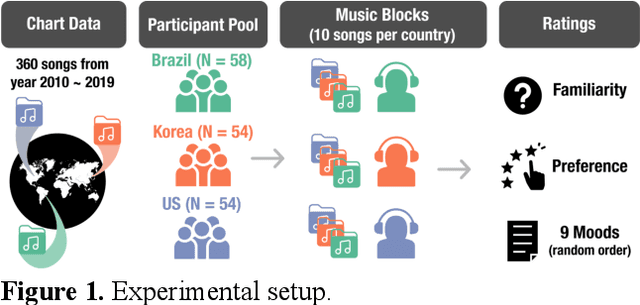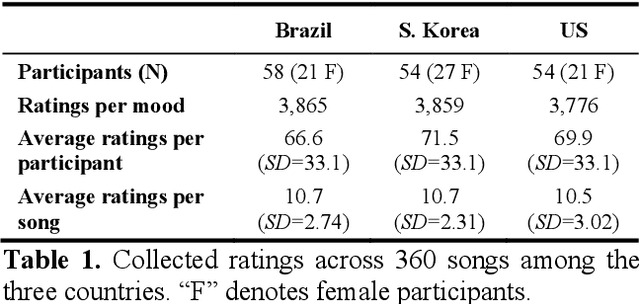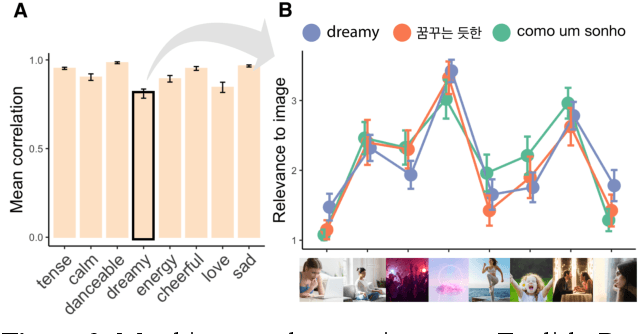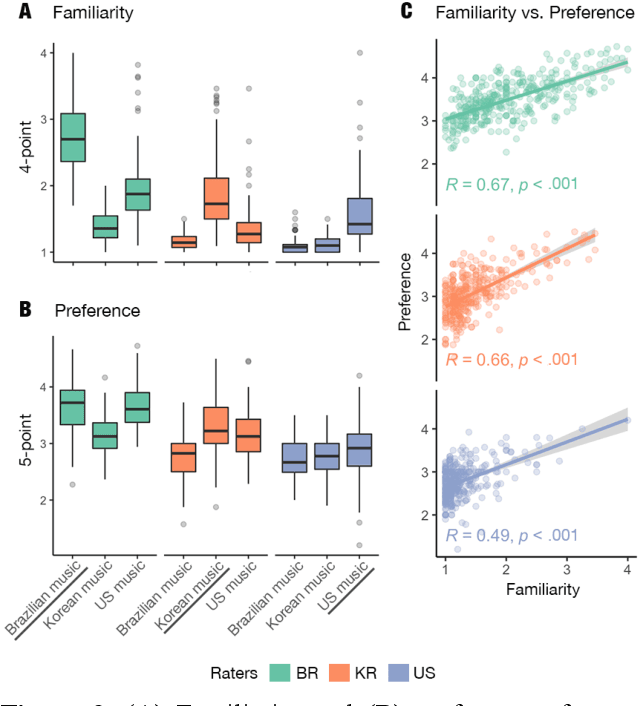Cross-cultural Mood Perception in Pop Songs and its Alignment with Mood Detection Algorithms
Paper and Code
Aug 02, 2021



Do people from different cultural backgrounds perceive the mood in music the same way? How closely do human ratings across different cultures approximate automatic mood detection algorithms that are often trained on corpora of predominantly Western popular music? Analyzing 166 participants responses from Brazil, South Korea, and the US, we examined the similarity between the ratings of nine categories of perceived moods in music and estimated their alignment with four popular mood detection algorithms. We created a dataset of 360 recent pop songs drawn from major music charts of the countries and constructed semantically identical mood descriptors across English, Korean, and Portuguese languages. Multiple participants from the three countries rated their familiarity, preference, and perceived moods for a given song. Ratings were highly similar within and across cultures for basic mood attributes such as sad, cheerful, and energetic. However, we found significant cross-cultural differences for more complex characteristics such as dreamy and love. To our surprise, the results of mood detection algorithms were uniformly correlated across human ratings from all three countries and did not show a detectable bias towards any particular culture. Our study thus suggests that the mood detection algorithms can be considered as an objective measure at least within the popular music context.
 Add to Chrome
Add to Chrome Add to Firefox
Add to Firefox Add to Edge
Add to Edge